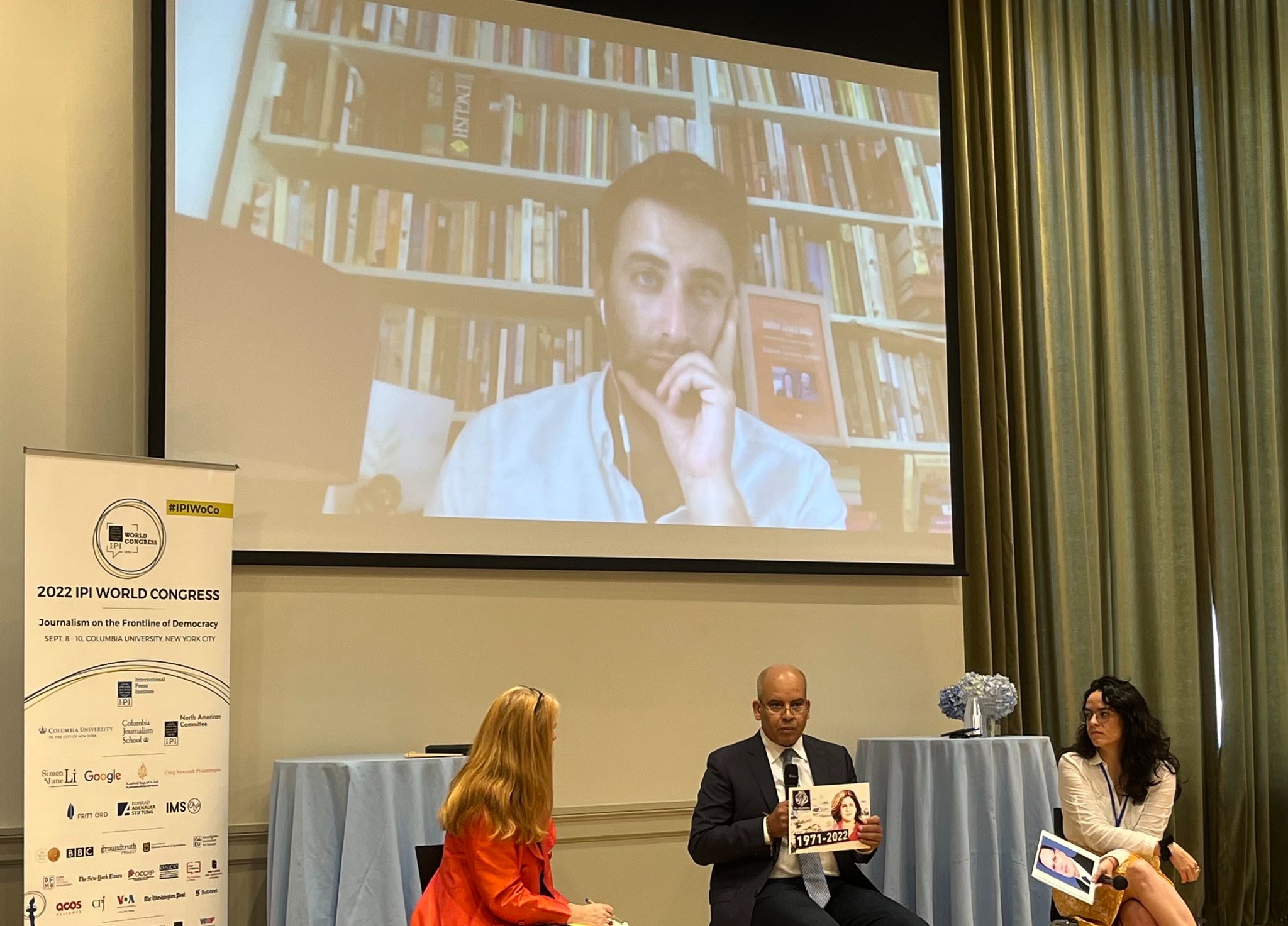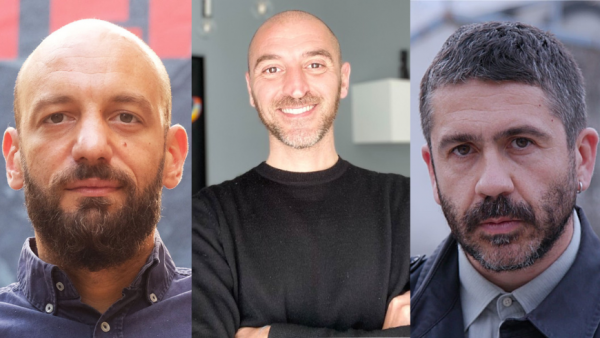In the face of escalating violence towards the press around the world, we must tackle impunity as a root cause, according to panelists at the 2022 IPI World Congress session “Ending impunity for the killing of journalists: Alternative paths to justice?”
Moderated by president of the Committee to Protect Journalists (CPJ), Jodie Ginsberg, the session brought together a group of panelists to discuss alternative paths to justice for attacks against journalists, as governments have largely failed to uphold their legal responsibility to investigate and prosecute when crimes against journalists occur.
Despite numerous national and international mechanisms aimed at improving journalists’ safety, the number of killed journalists remains staggeringly high, Ginsberg said, and only a small fraction of the killings have been solved over the past decade.
And as governments and law enforcement too often fail to investigate these crimes — and with weak international mechanisms that are unable to hold states accountable for their obligations to do so — much of the investigative work for attacks against journalists falls to the media, civil society, and even family members themselves.
Such has been the case with Shireen Abu Akleh, the veteran Al Jazeera journalist who was killed this May by Israeli sniper fire while reporting in the West Bank. Several journalistic investigations, including by Bellingcat, helped to pierce Israel’s efforts to sow doubt about who killed Abu Akleh. Indeed, after initially denying responsibility, Israeli authorities in September admitted there was a “high possibility” that Abu Akleh had been “accidentally” hit by its forces, but refused to pursue a further investigation or any charges against soldiers involved. Rights groups, some U.S. lawmakers, and Abu Akleh’s colleagues and family are instead pushing for a U.S.-led investigation into her killing, given that Abu Akleh was an American citizen.
Here at the #IPIWoCo panel on ending impunity for the killing of journalists, Al Jazeera’s Abderrahim Foukara holds a photo of Shireen Abu Akleh. He stresses the need for more reporting on impunity: “We are all in this together” pic.twitter.com/wFszm024Ib
— Lucy Westcott (@lvzwestcott) September 10, 2022
On Saturday’s panel, Al Jazeera Media Network’s Washington, D.C. Bureau Chief Abderrahim Foukara said he was not surprised by the Israeli government’s refusal to investigate Abu Akleh’s murder given the Israeli military’s appaling record of killing Palestinian journalists with impunity. He also said the U.S. must bear responsibility for investigating the killing of one of its own citizens but admitted that the prospect of the Biden administration doing so is unlikely “unless there is real pressure from the public and from within the administration”.
Public pressure can make a real difference, according to Matthew Caruana Galizia, son of well-known Maltese journalist Daphne Caruana Galizia, who was assassinated by a car bomb in 2017 after publishing stories about money laundering involving a number of Maltese politicians. Her shocking and brazen murder was met with enormous domestic and international outcry — without which, he said, his mother’s killing would have likely gone uninvestigated.
The resulting pressure led to the arrest and convictions of some of the perpetrators responsible her assassination. It also triggered an inquiry by the EU and years of political turmoil that ended in resignations by high profile politicians and officials including of Prime Minister Joseph Muscat.
Yet much of the effort to seek justice has been ultimately driven by the Galizia family, who from the outset mobilized and coordinated various domestic and international campaigns pushing for accountability.
#IPIWoCo 2022: On now: Join our discussion on ending impunity for the killing of journalists, led by @pressfreedom‘s @jodieginsberg, with @mcaruanagalizia, Paula Saucedo of @article19mex and Abderrahim Foukara of @AlJazeera.
👉 https://t.co/DE1kvtaCcs pic.twitter.com/0j1CDyDbgE
— IPI – The Global Network for Independent Media (@globalfreemedia) September 10, 2022
As with his mother’s case, most murders of journalists are directly linked to investigations on corruption, according to Galizia. For this reason, governments have no incentive to investigate when attacks against journalists occur — and there are no real mechanisms at the international level to hold domestic governments accountable for their obligation to do so.
One way to the end impunity for the killing of journalists is to “address the corruption that led to the murder itself”, he said.
He also said we must address the underlying culture of anti-press rhetoric and verbal harassment of journalists, saying that his mother’s case is one of the most “egregious cases of harassment and abuse that then led to her violent killing”.
In Mexico, where 15 journalists have been murdered so far this year alone, the press has faced increasing violence and hosility since the 2018 election of President Andrés Manuel López Obrador, who has used his pulpit to attack and smear the media. Despite promises of “zero impunity” for the killing of journalists, crimes against journalists have been met with near-blanket impunity.
Paula Saucedo, protection and defense officer at ARTICLE 19 Mexico, told the audience that journalists in Mexico operate in an extremely hostile environment, where severe human rights violations happen on a daily basis. While there is a national protection mechanism that was set up to protect the country’s journalists, the Federal Mechanism for the Protection of Human Rights Defenders and Journalists, Saucedo said this scheme is not enough because it is not preventive and most attacks are perpetrated by public officials.
“We have to as a society address why a journalist was killed,” she said. “We must look to the underlying reasons for the violence against the press.”


